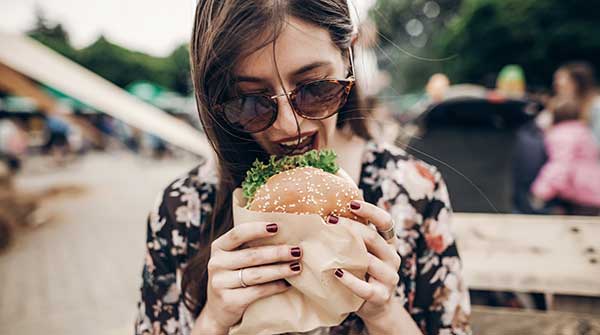The state has no place in the kitchens of the nation
 COP15 on biodiversity has brought thousands of delegates to Montreal to address critical issues our planet is facing. Regarding food systems, delegates are discussing agroecology, food systems intensification, and fisheries in food security.
COP15 on biodiversity has brought thousands of delegates to Montreal to address critical issues our planet is facing. Regarding food systems, delegates are discussing agroecology, food systems intensification, and fisheries in food security.
One issue catching some people’s attention is diet and overconsumption. That’s right; food is being discussed in Montreal.
Many believe that food systems are the single largest cause of biodiversity loss on land, and the pressure our diets put on our biodiversity is significant. So COP15 looks at diets and the overconsumption of food.
The “diet and overconsumption” motion, which really entails reducing animal protein consumption, is supported by the EU but opposed by Paraguay, Argentina, and Canada. The motion itself appears to be largely inspired by the EAT-Lancet “planetary health diet,” half of which is comprised of fruit and vegetables, with whole grains, unsaturated plant oils, and plant-sourced proteins also playing a large role. Animal protein, including dairy and eggs, would represent about 10 percent of the diet. The current Canadian diet consists of more than 35 percent of some form of animal protein.
 |
| Related Stories |
| Farming is losing to misguided urban politics
|
| Extremist views make for bad food policies
|
| After 50 years, UN-led environmental central planning is failing |
Canada’s animal protein industry’s GDP contribution exceeds well over $60 billion. More critically, our dairy industry’s contribution to our economy exceeds $20 billion annually and relies on a government-sanctioned quota system for its protection. Same for poultry and eggs. This regime has been incredibly safeguarded by all political stripes in Ottawa over the last 50 years. No wonder Canada is against the motion, and very few see that changing anytime soon. But, of course, you never know with Ottawa these days.
The motion suggests that COP15 is in the thrall of idealistic and extremist views on what our food systems should look like. And based on some media coverage, debates are not welcomed either.
Extreme environmental groups have claimed that lobby groups representing seed, chemical, and fertilizer giants have no place at COP15. They are wondering why some were accredited in the first place. These extremist groups believe they literally own the moral pathway to a greener planet, and other groups – such as companies like Bayer, Corteva, Syngenta-ChemChina, Synagri, and Sollio, should be silenced and excluded from COP15 altogether.
The ultimate objective of agri-environmental groups is to turn the entire world organic, which is neither sustainable nor desirable.
The views of input companies and farmers – who are also environmentalists but hold a different perspective on agriculture – also need to be represented at COP15. Groups like CropLife have sustainable solutions and have done some valuable research which deserves to be shared. Technologies developed by some companies have and will continue to keep our food more affordable.
While 2022 has been unkind to many of us at the grocery store, our food inflation storm could have been much worse without the work being done in agriculture by major players.
The we-know-best approach and claims to exclude groups that may not share your view is utterly shameful. That needs to stop. Some reporters have also embraced the urban-centric ecological bandwagon for some time as well, and that also needs to stop.
Agriculture is not about adopting one single model over others. While organics may be wonderful, their scalability is limited. Farmers are no longer just happy living out in the field. Men and women working in farming are astute, business-minded people who want to make a difference. They are also immensely aware of the climatic challenges that lie ahead. We need to trust them. We also need to listen to those who empower our farmers to be the best environmental stewards they can be.
In the end, it is indeed about choice and food democracy. Pierre Elliott, the father of our current prime minister, once famously mentioned that “there is no place for the state in the bedrooms of the nation” to defend the LGBTQIA+ community and the Charter of Rights. Well, the same should be said for our own kitchens. We should respect everyone’s diets and choices.
Dr. Sylvain Charlebois is senior director of the agri-food analytics lab and a professor in food distribution and policy at Dalhousie University.
For interview requests, click here.
The opinions expressed by our columnists and contributors are theirs alone and do not inherently or expressly reflect the views of our publication.
© Troy Media
Troy Media is an editorial content provider to media outlets and its own hosted community news outlets across Canada.

